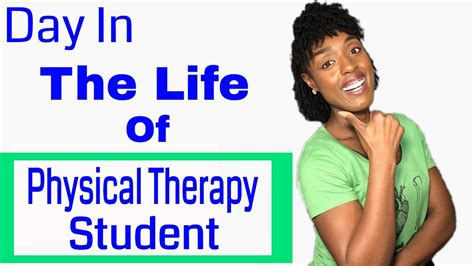Physical therapy (PT) school is a rigorous and demanding academic program that prepares students to become licensed physical therapists. The curriculum is designed to provide students with the knowledge and skills necessary to assess, diagnose, and treat a variety of musculoskeletal conditions.

The American Physical Therapy Association (APTA) reports that the average physical therapy school acceptance rate is just 26%. This means that only one in four applicants will be accepted into a PT program. Once accepted, students can expect to spend the next three years completing a rigorous curriculum that includes both classroom and clinical coursework.
Curriculum
The PT school curriculum is typically divided into three years of study. The first year consists of basic science courses such as anatomy, physiology, and kinesiology. The second year focuses on clinical sciences, such as orthopedics, neurology, and cardiorespiratory. The third year is spent completing clinical rotations in a variety of settings, such as hospitals, clinics, and schools.
Clinical Rotations
Clinical rotations are an essential part of the PT school curriculum. They provide students with the opportunity to apply their classroom knowledge to real-world situations. During clinical rotations, students work under the supervision of licensed physical therapists and gain experience in assessing, diagnosing, and treating patients with a variety of conditions.
Rigor
PT school is a challenging program. The curriculum is demanding, and the clinical rotations can be physically and emotionally draining. However, the rewards of a career in physical therapy are well worth the effort. Physical therapists are in high demand, and they can expect to earn a good salary and enjoy a rewarding career.
Tips for Success
If you’re considering a career in physical therapy, there are a few things you can do to increase your chances of success in PT school. First, make sure you have a strong foundation in math and science. Second, get involved in extracurricular activities that demonstrate your leadership skills and commitment to helping others. Third, volunteer or work in a physical therapy setting to gain some experience in the field.
Common Mistakes to Avoid
There are a few common mistakes that PT school applicants make. First, they underestimate the difficulty of the program. Second, they don’t prepare adequately for the GRE. Third, they don’t apply to enough schools.
Conclusion
PT school is a challenging but rewarding program. If you’re considering a career in physical therapy, it’s important to be aware of the challenges you’ll face. However, with hard work and dedication, you can succeed in PT school and achieve your dream of becoming a licensed physical therapist.
Additional Resources
- American Physical Therapy Association
- National Physical Therapy Association
- Federation of State Boards of Physical Therapy
Tables
| Year | Coursework | Clinical Rotations |
|---|---|---|
| Year 1 | Basic science courses (anatomy, physiology, kinesiology) | None |
| Year 2 | Clinical sciences (orthopedics, neurology, cardiorespiratory) | Begin clinical rotations |
| Year 3 | Advanced clinical sciences | Complete clinical rotations |
| Stat | Value |
|---|---|
| Average PT school acceptance rate | 26% |
| Median GRE score for PT school applicants | 305 |
| Average salary for physical therapists | $91,580 |
| Projected job growth for physical therapists | 18% |
